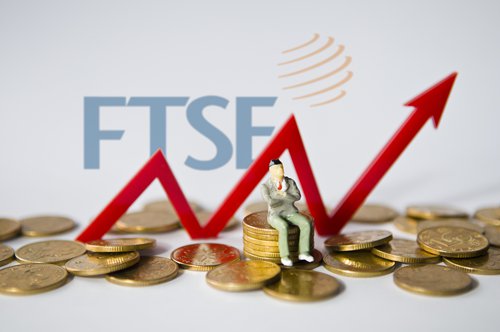HOME >> BUSINESS
China's A shares rise after FTSE inclusion
Source:Global Times Published: 2019/5/27 21:38:40
A shares rise after FTSE inclusion

Photo: VCG
Equities on the Chinese mainland edged up on Monday in response to the inclusion of 20 percent of the A shares by leading global multi-asset index FTSE Russell in its widely tracked global benchmarks, effective on June 24.
A move like this, and the incremental capital that will flow in as a result, will reduce the exchanges' volatility, which is caused by shortage of long-term funds, one expert said.
On Monday, the Shanghai Composite Index was up 1.38 percent to 2,892.38 points, while the Shenzhen Component Index rose by 2.31 percent to 8,979.83 points.
According to FTSE Russell, in this stage, 1,097 Chinese stocks, or roughly 20 percent of A shares, will be included in the indexes, drawing an expected $10 billion from passive investors.
FTSE Russell will add 40 percent of A shares to its indexes in September and another 40 percent in March next year.
Recently, MSCI announced a decision to double the inclusion factor of A shares in the MSCI indexes to 10 percent. The move followed a decision in March to increase the inclusion factor of A-shares to 20 percent in a three-step process in May, August and November, each time raising the representation of Chinese large-cap stocks by five percentage points.
The two markets have been edging down in the past month amid twists and turns in the China-US trade dispute. On April 26, the Shanghai market stood at 3,086.40 points, while the Shenzhen market stood at 9,780.82 points.
Li Daxiao, chief economist at Shenzhen-based Yingda Securities, told the Global Times on Monday that the move by FTSE Russell is a significant step in the globalization of the Chinese A-share market, and will prompt other important international indexes to include A shares.
"The volatility of the A-share market caused by a shortage of long-term funds would be mitigated and China's stock market will gradually become an international investment place with diminishing systemic risks," Li said.
Yang Delong, chief economist at the Shenzhen-based First Seafront Fund Management Co, said on Monday that the intention of overseas investors to put money into A shares at this time is very obvious. They want to buy at a time when A-share valuations are low.
"The increasing inclusion of A shares in international indexes shows overseas capital's optimism for A shares. It also reflects the fact that the increasing internationalization of the A-share market has won the recognition of overseas investors," Yang said.
He said overseas institutions such as Goldman Sachs, Morgan Stanley and some overseas hedge funds have all expressed optimism about the A-share market.
"The A-share market's institutional reform is always progressing, which is also attracting overseas capital," Yang said.
Newspaper headline: A shares rise after FTSE inclusion
Posted in: MARKETS